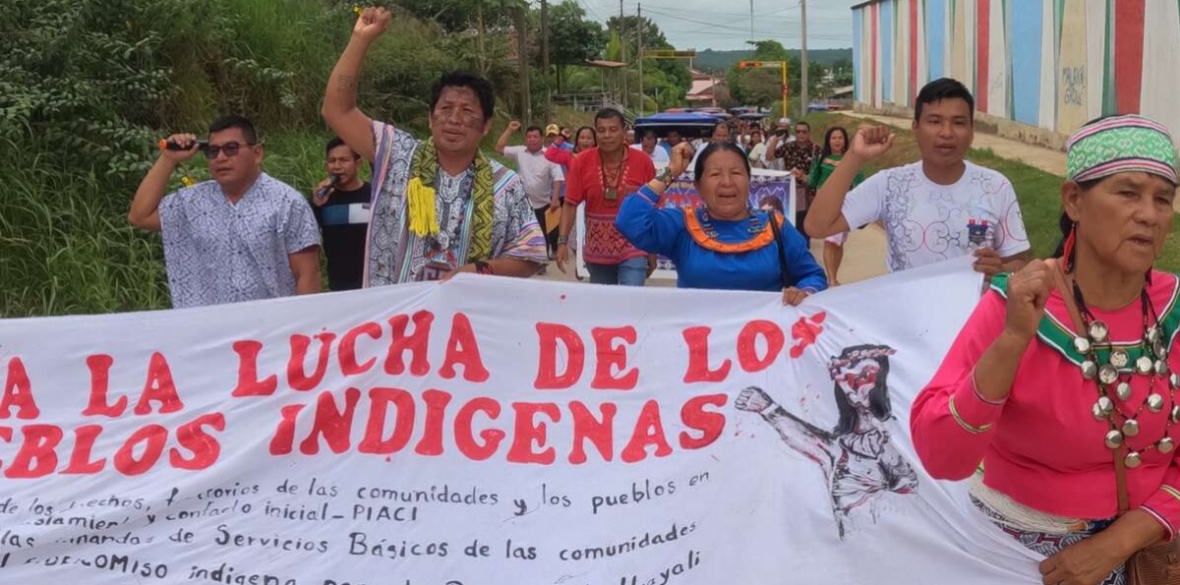Indigenous peoples unite against Peruvian Bill

Indigenous leaders from Brazil and Peru are joining forces to fight a proposed bill in Peru that would strip uncontacted tribes of their land. The bill, which currently debated in Peru’s Congress, would allow regional governments to open up land that currently protected for uncontacted tribes to mining, logging, and other development projects.
 Brazilian and Peruvian Indigenous leaders speak out against a proposed bill that critics say threatens unconctacted tribes during a June 13, 2023 press conference at the Peruvian Congress.
Brazilian and Peruvian Indigenous leaders speak out against a proposed bill that critics say threatens unconctacted tribes during a June 13, 2023 press conference at the Peruvian Congress. (Photo: AIDESEP/Twitter)
What is the Peruvian Bill?
A bill currently considered by the Peruvian Congress that would strip uncontacted Indigenous people of their land and rights. The bill, known as the “Decentralization and Development Bill,” would give regional governments the power to create and dissolve Indigenous reserves, and would also allow for the development of oil and gas projects on Indigenous land without their consent.
Why the bill opposed?
Indigenous leaders and activists from Brazil and Peru are opposing the bill, arguing that it would lead to the genocide of uncontacted Indigenous people. They point out that uncontacted people have little or no immunity to diseases from the outside world, and that they would be particularly vulnerable to exploitation by oil and gas companies.
What are the consequences of the bill passed?
If the bill passed, it would have devastating consequences for uncontacted Indigenous peoples. They would be at risk of disease, exploitation, and even genocide. The bill would also set a dangerous precedent for the rights of Indigenous peoples around the world.
What can done to stop the bill?
There are a number of things that can done to stop the bill. People can contact their representatives in the Peruvian Congress and urge them to vote against the bill. They can also donate to organizations that are fighting against the bill, such as Survival International.
What is the future of the bill?
The future of the bill is uncertain. It’s currently debated in the Peruvian Congress, and it’s unclear whether it will pass. However, Indigenous peoples and their supporters determined to fight against the bill and protect their rights.
Conclusion
The fight against the Peruvian Bill is a critical one. The bill would have devastating consequences for uncontacted Indigenous peoples, and it would set a dangerous precedent for the rights of Indigenous peoples around the world. People around the world must stand in solidarity with Indigenous peoples and fight against this bill.

- Art
- Causes
- Best Offers
- Crafts
- Dance
- Drinks
- Film
- Fitness
- Food
- Παιχνίδια
- Festival
- Gardening
- Health
- Κεντρική Σελίδα
- Literature
- Music
- Networking
- άλλο
- Party
- Religion
- Shopping
- Sports
- Theater
- Wellness



